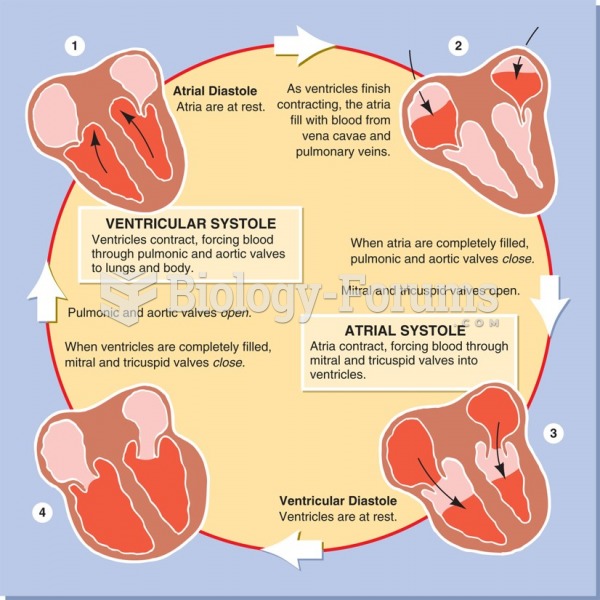|
|
|
This year, an estimated 1.4 million Americans will have a new or recurrent heart attack.
The first oncogene was discovered in 1970 and was termed SRC (pronounced "SARK").
Though Candida and Aspergillus species are the most common fungal pathogens causing invasive fungal disease in the immunocompromised, infections due to previously uncommon hyaline and dematiaceous filamentous fungi are occurring more often today. Rare fungal infections, once accurately diagnosed, may require surgical debridement, immunotherapy, and newer antifungals used singly or in combination with older antifungals, on a case-by-case basis.
The B-complex vitamins and vitamin C are not stored in the body and must be replaced each day.
Aspirin is the most widely used drug in the world. It has even been recognized as such by the Guinness Book of World Records.






